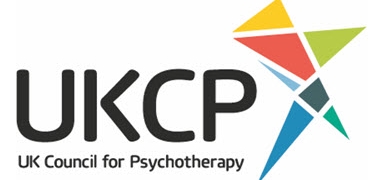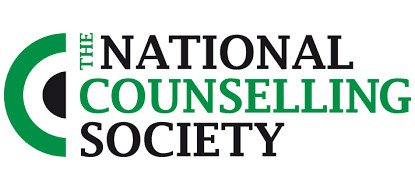What is Counselling Psychology?
/Throughout different eras and cultures, people have gravitated to so-called "healing" relationships. In the modern Western world that takes the form of therapy. Many words are used to describe therapy - counselling, CBT, psychological interventions, psychoanalysis and for a lay person it can seem like a confusing and academic world, far removed from day to day mental health concerns. To cut through some of this confusion here is some information on what it means to be a Counselling Psychologist.
What is therapy?
Therapy for me is a trained mental health practitioner working in a collaborative therapeutic relationship with an individual, couple, family or group. Practitioners of Counselling Psychology offer high-quality psychological therapy with the aim of providing clients with a confidential, non-judgemental space to discuss their thoughts and feelings.
I believe that we all experience challenges and difficulties in life. Counselling and psychological therapy can provide an empowering opportunity to manage, process and overcome these difficulties. When engaging in evidence-based counselling psychological therapy, the hope is that we can gain clarity about where we are in life and how best to move forward. The aim being; to achieve our full potential and gain acceptance of ourselves through self-awareness.
There are many different types of therapy and they can lend themselves to different types of presenting problems. They can also define the stance of the therapist themselves.
Why see a Counselling Psychologist
Counselling psychology is a form of professional applied psychology, where evidence based practice is put at the heart of therapy, aiming to help those in distress through collaborative and effective practice. Practitioners of Counselling Psychology are trained to doctoral level, in a range of therapeutic modalities; and show a high degree of self-awareness. This allows them to assess and formulate therapeutic interventions that are applicable to the individual’s emotional distress and are collaborative in nature. It combines the essence of counselling with the rigour of psychology.
Counselling psychologists apply a range of techniques from multiple disciplines to best help you on your journey through life.
What does Counselling Psychology look like in practice?
I believe that my training allowed me to learn in different types of therapy, study them to the highest level and practice them with a depth of understanding. That is not to say that other practitioners – other Applied Psychologists, Psychotherapists, Counsellors etc. - have not done this. Far from it – every practitioner is different and there are many routes to qualification. My Counselling Psychology training allowed me to study and become proficient in several different types of therapy. I now practice humanistic, psychodynamic and cognitive behavioural approaches.
Training in Counselling Psychology
During training, there are several other requirements to ensure that you become a robust and proficient practitioner. Firstly, you are expected to complete your own personal therapy. You are in therapy throughout your training and this allows you to understand what it feels like to be a client. Secondly, you are expected to have completed 500 hours of supervised practice by the end of your training.
Counselling psychologists are trained up to doctoral level, and commit to hundreds of hours of training as well as a research project.
My Counselling Psychology research
Another aspect of training is that you complete a doctoral level research project and are examined by viva.
My research focussed on thesis critiques and describes the prevalent discourses regarding notions of “difference” in counselling psychologist’s talk. Semi-structured interviews were conducted with eight participants and were tape-recorded, transcribed and analysed. Participants were asked to speak about notions of “difference” in their counselling psychology practice. Analysis of transcripts provided a rich range of possible constructions of “difference” and were then grouped into headings and subheadings and presented to the reader.
These notions of “difference” are explored in relation to counselling psychology practice and the impact that they may have on therapeutic relationships. The thesis addresses how important it is for counselling psychologists to analyse the discourses and constructions available to them so that their clients are facilitated in the therapeutic encounter and so that practitioners’ constructions of “difference” do not hinder therapy. This study contributes to highlighting the need for counselling psychology’s continued commitment to anti-oppressive and anti-discriminatory practices.
How much does it cost to see a Counselling Psychologist?
Therapy can be a financial and time-consuming commitment. In order to gain the most out of the experience it is important to find a practitioner that you feel is competent, trained to a level you are comfortable with and committed to working with you. To attain this level of training, stability and expertise and be working in private practice takes a long time. Also setting up and managing a private practice has outgoings of its own – room hire, insurance, accreditation and therefore, you are looking at a sessional fee of £50 up to £110 for applied psychologists with decades of experience. Due to the level of training, counselling psychologists may charge more than a counsellor.
What is Accreditation?
When choosing a practitioner, a counselling psychologist or a counsellor, what I would highlight is that whatever type of practitioner you decide to see it is crucial to check that they are appropriately qualified and that those qualifications are verified by an official governing body.
Counselling Psychologists can be registered with both the British Psychological Society and Health and Care Professional Council. They are required to be registered with the Health and Care Professionals Council. They both have registers and professional websites on which you can check if a practitioner is registered and chartered and registered practitioners will have their emblems on the website. Without professional regulation, anyone can use these protected titles. Being registered assures the public that these practitioners have met a certain level of proficiency and are continually engage in continuing professional development.
Whoever you work with to support your mental health and in whatever capacity they help - it can be a life changing experience.






